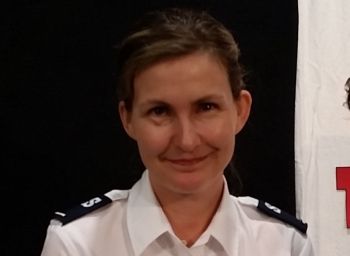Nurturing a new mentality

Nurturing a new mentality
8 October 2019
Photo: Julian Berengar S
This month, Australia marks Mental Health Week, an annual event that focuses on improving community awareness and interest in mental health and wellbeing. World Mental Health Day is marked every year on 10 October.
The statistics around mental health are alarming. According to the 2007 National Survey of Mental Health and Wellbeing, conducted by the Australian Bureau of Statistics, one in fi ve Australians aged between 16 and 85 (almost four million people) experience one of the common forms of mental illness – anxiety, affective or mood disorders, and substance use disorders – in any given year.
Almost one in two will experience mental illness in their lifetime. Anxiety-related and affective disorders are the most common, striking approximately 14 per cent and 6 per cent, respectively, of adults each year, with about a quarter having more than one disorder.
Yet despite the prevalence of mental illnesses, positive education and awareness campaigns around them, and additional resources being made available, there is still too often a stigma attached to having a mental illness, or certain stereotypes and assumptions applied to those suffering these conditions.
This stigma can be from the person themselves, who may feel like they have failed or can’t cope with life; from the person’s family or friends who think they should just ‘snap out of it’; or from the broader community.
Colleen Morris, a counsellor and family therapist based in Melbourne, says that as human beings, we all have our limits and none of us are immune from suffering some degree of anxiety, depression or a decline in our mental health at some point in our lives. “It’s critically important to break down the stigma around mental health and realise that our common denominator is our humanity and our vulnerability and each one of us has our limits,” she says.
“It’s about trying to normalise mental health and recognising it’s something we all have. It’s on a continuum and on any given day we all move up or down a bit depending on how we are and what has been or is happening in our lives. It’s also about recognising, if we’re on the lower end of the continuum, that this doesn’t identify us and we can move up, develop healthier traits and work through or manage the role mental health plays in our lives.
“This is a daily battle for people who suffer much more than the average person too, of course. Many people go through years of therapy and ongoing support to come to a place of managing their illness, resolution or healing.”
SHARING THE JOURNEY  Aux-Lieutenant Dr Catherine Philpot.
Aux-Lieutenant Dr Catherine Philpot.
Aux-Lieutenant Dr Catherine Philpot, Centenary Corps Officer (Brisbane) and registered psychologist, says that stigma is a key to perpetuating mental illness. “Mental health issues don’t belong with evil and darkness,” she explained.
“Someone suffering mental health issues is in a real and personal place, one that is sad, uncomfortable and horrible, but it’s not a person’s fault and it’s not helpful to blame them for feeling miserable or having crippling anxiety. This just adds a whole layer of guilt and shame to what is already so painful and it gets people stuck.”
Catherine says that although the average person believes that mental health issues are a medical problem for those experiencing them, family, friends and the general community all have a supportive role to play, with the most significant contributor to effective mental health ‘treatment’ coming from empathy and a sense of being connected with and understood by another.
“We don’t need professional qualifications to listen to someone or share our own story,” she says. “We can all listen to and come alongside people without hurtful value judgements or telling them what they ‘should’ do. And hearing someone else’s story, knowing that you’re not alone, brings hope.
“Additionally, if people feel like they belong in a caring, loving and accepting group and are part of something that values them, they have an identity that is positive and brings a mental health benefit.”
While Catherine believes that there is definitely a role for medication and professional help, she says many of the illnesses we experience today have been with us for millennia, but just without a medical label. “Look at Psalm 22 – that is a generalised anxiety disorder right there,” she says.
“Contrast, though, the Old Testament model of handling crises. They tore their clothes and sat in sackcloth and ashes in the street. People saw them, came and sat with them and tore their clothes as well. How great would that be; people sharing their stories openly and literally having others right beside them on the journey.”
According to Catherine, while the level of mental illness increases in Western and developing countries, it’s still not clear whether more illnesses are just being diagnosed or more are actually developing in response to culture and lifestyles. “Either way, there is hope and the power of Jesus for those struggling and overwhelmed with mental health issues, as well as for those trying to walk alongside them,” she says.
“During his time on the earth, Jesus experienced many emotions and feelings, including sadness, anger, anguish and fear as he anticipated his approaching death. Jesus is the light of the world – he transforms our sorrows, transforms our lives and becomes the wings with which we can help others. He loves us no matter what we’ve done and where we’ve been.”
NETWORK OF SUPPORT
The journey of mental illness is one for the entire family and can be a struggle both for those su ering the illness and its effects, and those around them who desperately want to help and see their loved ones recover. 
Sally, who battled depression for many years and manages it now as part of an active lifestyle, says that family, as well as church, professionals and the community, are all part of the journey of recovery.
“Without one of those cogs, my recovery wouldn’t have been as whole,” she says. “A range of supportive networks helps you enter recovery. You might continue to live with the condition but it doesn’t control you anymore and family plays a key role in that.”
Colleen says that if a close family member is receiving counselling for a condition, it can be supportive for family members to also go along. is helps in their personal growth and under- standing so they don’t perpetuate cycles and are part of the support, growth and healing, and not the problem.
“There are different ways that family members can offer support,” says Colleen. These include:
- Listen to the person and try to understand their unique situation.
- Come alongside the person, as opposed to confronting them, see how they’re going and ask what you can do to support them.
- Be gentle, kind, caring, committed, sensitive and patient.
- Don’t give advice.
- Avoid ‘should’ and ‘need to’ statements that can take away the person’s already damaged sense of power and control in their own lives.
- Negotiate on how you can help. For example, “Would it be helpful if I made that appointment for you?” Or, “It sounds like it’s hard for you to pick up the phone; can I help here?”
- Be aware of how you’re interacting and apologise if needed.
- Take care of yourself too and stay aware of your own journey on the mental health continuum.
Mental health can be very complex, can affect anyone, and is a burgeoning issue in Australia.Th ere is definitely no ‘one size ts all’ when it comes to recognising issues, diagnoses, getting help, managing conditions, and recovery.
If we can value our own mental health and well-being – and that of those around us – as well as being aware of, sensitive towards, and caring and non-judgemental to those who are struggling with mental health issues, we can be a step in their recovery process and journey to wholeness.
Simone Worthing is a staff writer for Others.
The Salvation Army offers a range of services for those struggling with mental health issues, which vary according to location. These can include caring and nurturing communities, case workers, counsellors, and referrals. Contact your local Salvation Army for details.
National crisis contact numbers include:
-
Emergency – 000
-
Beyond Blue – 1300 22 46 36
-
Lifeline – 131 114
-
Kids Helpline – 1800 551 800
Additional help varies from state to state, and specialised lines are also available for di erent community groups, including Aboriginal and Torres Strait Islanders, the LGBTI community, non-English speakers, and others. Check online for details.